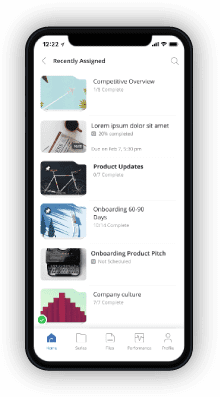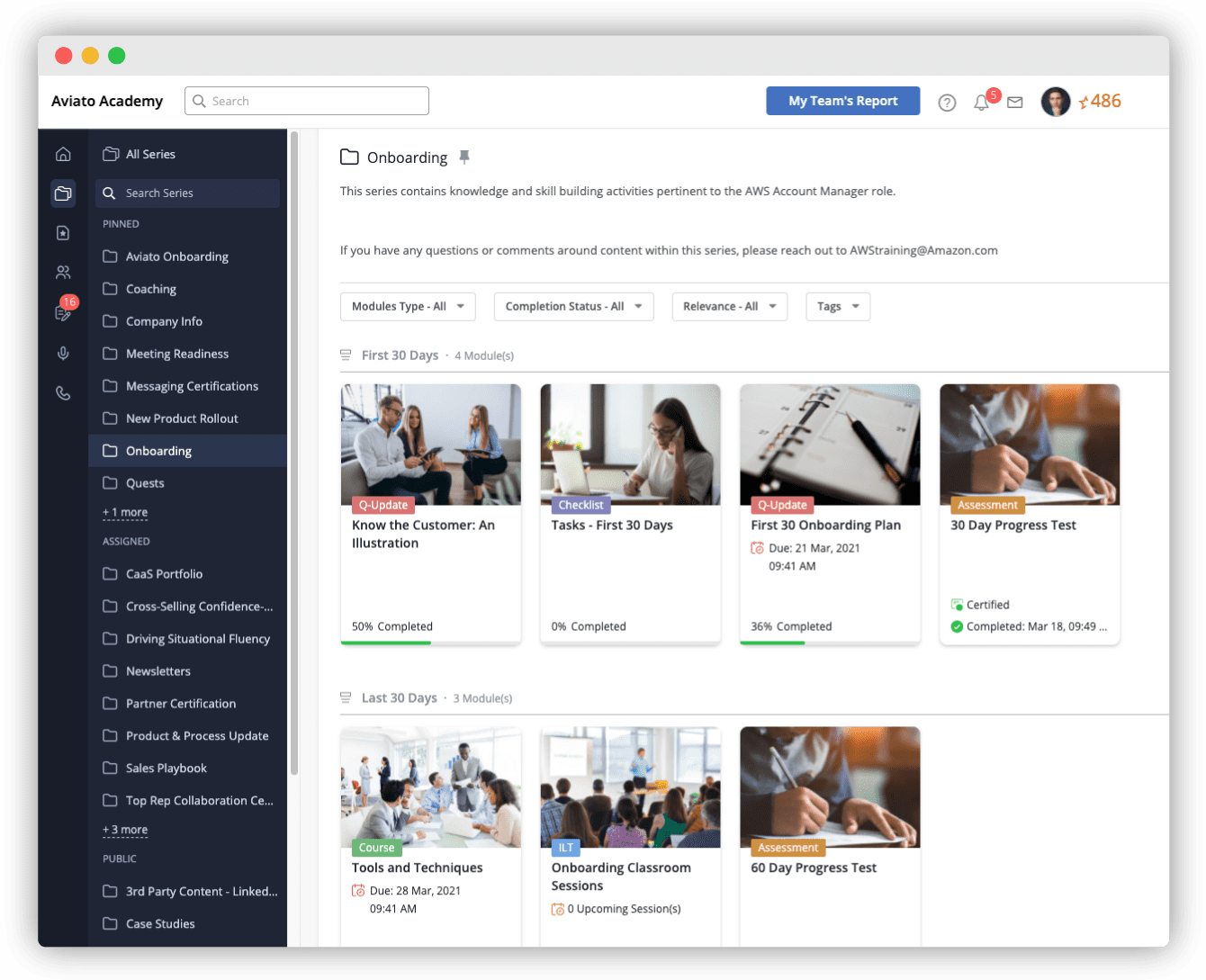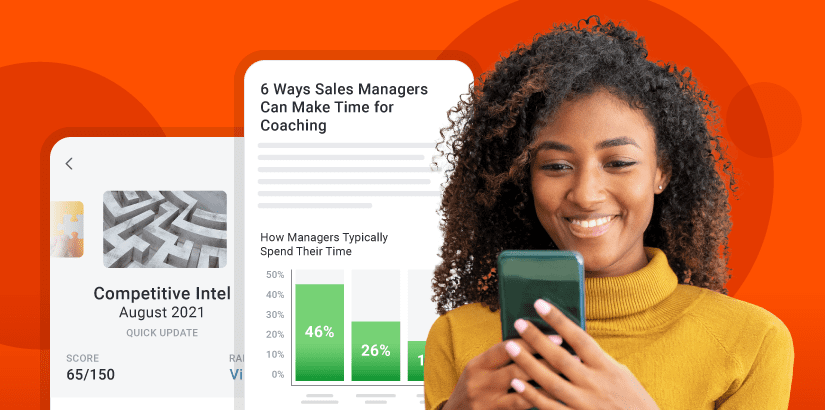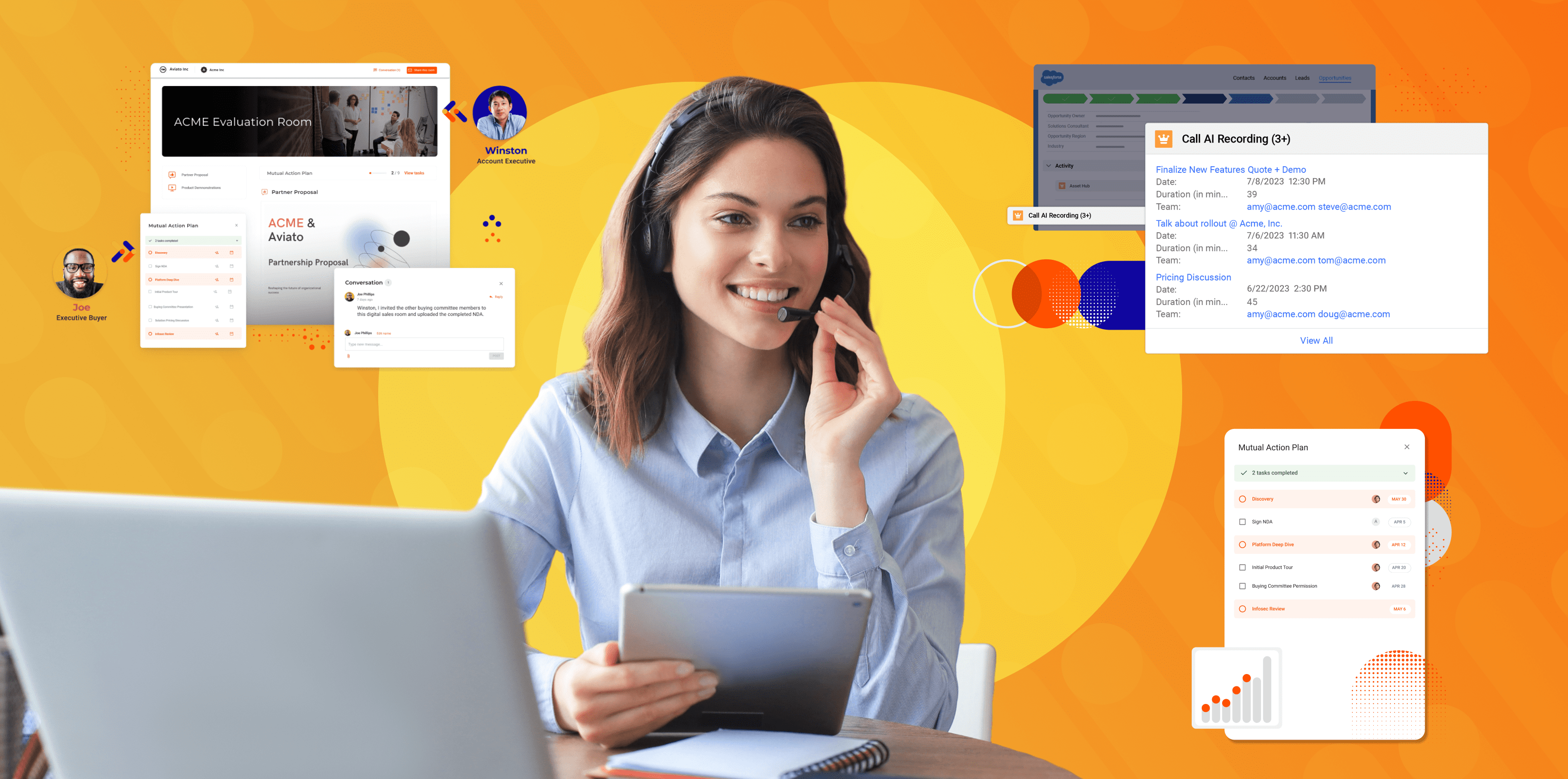Today’s productive and successful seller must be a jack of all trades, mastering a variety of skills to engage buyers and close deals.
Sales onboarding and ongoing enablement activities are typically one-and-done affairs for sales reps. Reps are bombarded with information about the company, industry, customers, competitors, and sales methodologies over the span of a week or so, then left to their own devices and expected to dive in and start selling.
What can leadership do to ensure reps gain all the knowledge they need and absorb it for ongoing success? Develop a sales training strategy that includes microlearning. It could be the secret to turning sellers on your team into better performers.
What is microlearning?
Where traditionally sales organizations onboard new reps and then often don’t train again until months later at annual meetings, microlearning keeps reps up-to-date all the time and is a key part of sales everboarding, a term we use to reference ongoing learning. microlearning provides small, bite-sized training materials that are more engaging and interactive. Typically offered via a mobile platform, these materials are remotely accessible and can be completed at one’s convenience.

The key to developing a microlearning program is to identify and work toward specific learning objectives, using training materials that are highly focused and complementary.
Examples of microlearning include:
- Videos delivered by SMEs, successful sales reps, or executives
- Quizzes
- Games
- Situational simulations
Challenges in sales enablement & training
There’s a lot at stake for your sales enablement and training activities: You need to build (or rebuild) the knowledge and skills your salespeople will need to succeed while also promoting morale and teamwork. So it’s key to keep reps engaged throughout onboarding and beyond:
-
- Holding reps’ attention. If you throw too much information at your reps at one time, their focus will inevitably fade– so it’s on you to find ways to maintain the team’s concentration.
- Reducing time away from selling. Reps may also be hesitant — or even bothered — to take time away from work for enablement activities because they see the opportunity cost of training as too high. phones and computers and
- Focusing on sales skills. Salespeople are not interested in generic training that’s not clearly connected to business results, so ensure that your enablement activities aren’t just bite-sized, but also clearly aimed at improving outcomes.
- Keeping it interesting and individualized. Different people excel and struggle in different areas, and they also learn best through various methods. Using different modalities and adjusting enablement activities based on strengths and weaknesses will keep reps engaged and help them hone the skills they need to succeed.
- Getting information to stick through spaced reinforcements. Perhaps the biggest drawback to most sales onboarding and training is ensuring that knowledge is retained over the long haul. Research has shown that 90% of training is forgotten within a month if you don’t follow up, so spacing out short reinforcement activities is critical.
What microlearning can do for your sales training program
microlearning doesn’t solve all the challenges of conventional sales training but it’s an essential piece in transitioning to a more dynamic, sales everboarding approach Its mobile format is inherently shorter, more accessible, and more convenient for reps to complete and for leadership to distribute and measure. When training doesn’t feel like a huge undertaking, sellers are more likely to participate and complete the materials assigned to them.
As a key part of a sales training and enablement approach, the convenience of microlearning means it can be offered up at any time for continuous learning reinforcement. Keep salespeople on top of their game with materials at the ready, and get them quickly up-to-speed on products, promotions, and industry news with fresh videos and assessments.
Microlearning can also be easily tailored to fit the individual needs of every seller on your team. Depending on the specific person, buyer, and selling conversation, you can serve relevant and timely learning content when it’s needed most. How do you know whether training is having a positive impact? microlearning platforms have analytics capabilities for leadership to see not only which reps finished their assigned training, but also whether it had an effect on those reps’ real-life sales interactions.
The cherry on top with microlearning is its cost-effectiveness: You can reinforce and augment other learning without having to bear the considerable travel and facilities expenses associated with in-person sessions.


A culture of learning, from day one
Incorporating microlearning into your larger sales strategy doesn’t have to take away from in-person training; there is still value in congregating sellers in person to celebrate wins, set goals as a team, share ideas and best practices, and build rapport. microlearning supplements and supports these touchstone events for a true sales everboarding approach.
A focus on knowledge and skill-building in your initial onboarding and ongoing enablement activities will prepare new hires to be open and committed to continuing education, driving better outcomes for them as individuals and the organization as a whole.








